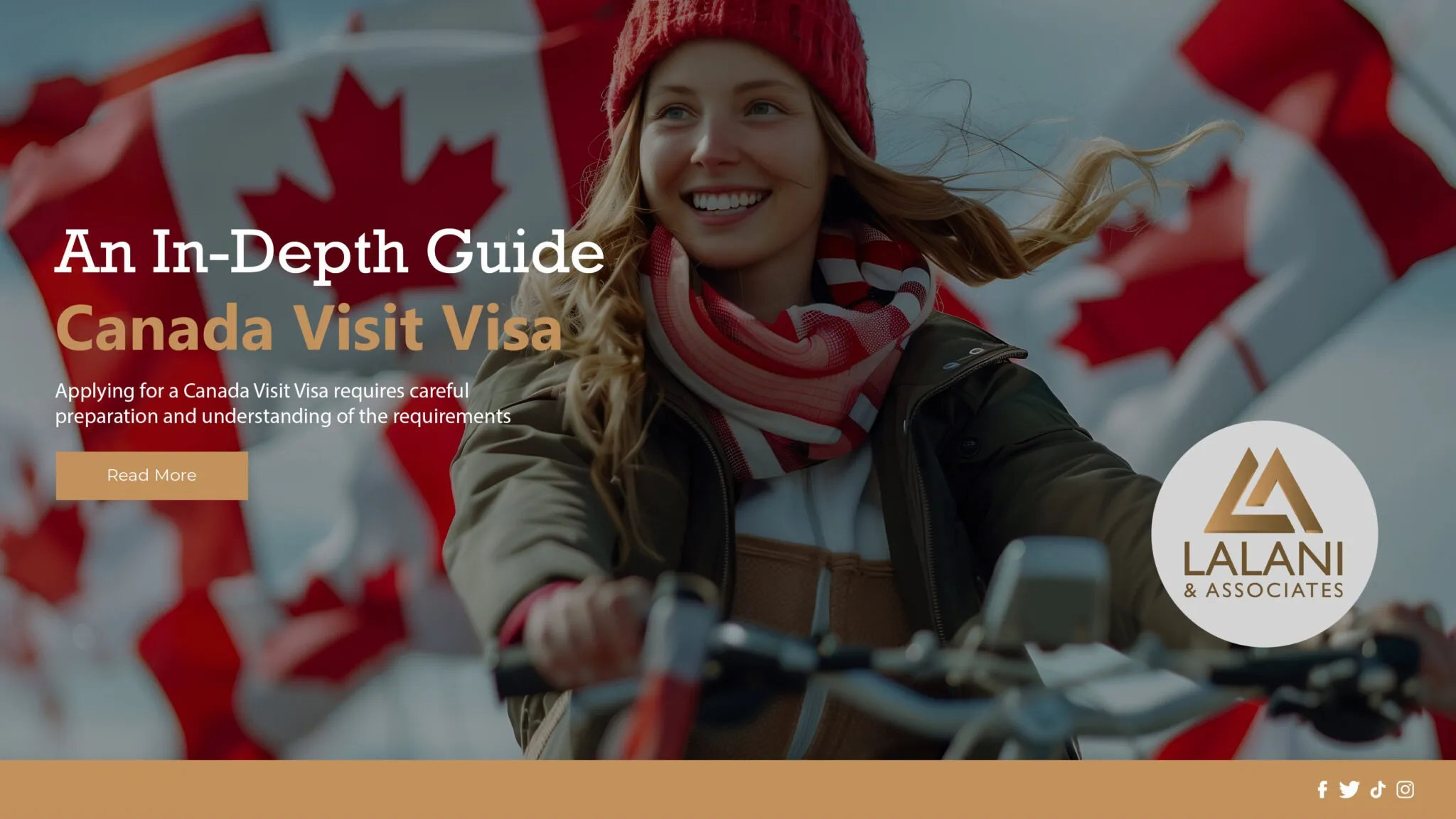
Canada is a popular location for short-term travelers, drawing millions of tourists there each year. People from all around the world find the country to be an appealing option because of its booming economy, first-rate healthcare system, and friendly atmosphere. You need to apply for a Canada Temporary Residence Visa if you want to travel to Canada for a brief period of time.
You can enter and remain in Canada for a short period of time with a Canada visit visa. There are several varieties of temporary residency visas, such as work, study, and visitor permits. Each type of visa has its own requirements and application process. However, they all require that you meet certain eligibility criteria.
Canada’s Types of Visas for Temporary Residency
Different kinds of temporary residence visas are available from Canada to suit different traveler needs. It is essential to comprehend the distinctions between these visas to make sure you apply for the appropriate one.
Visitor’s Visa
For those looking to travel to Canada for short business trips, family visits, or tourism, a Visitor Visa, also known as a Temporary Resident Visa (TRV), is required.
Eligibility Criteria
For a Visitor Visa to be granted, you have to:
- Possess a passport that is still valid
- Be in good health
- Possess no criminal history
- Convince an immigration officer that you have ties to your home country (such as a job, home, financial assets, or family) that will take you back
- Persuade an immigration officer that you intend to depart Canada at the conclusion of your stay
- Make sure you have enough cash for your stay
Application Process
The application process involves:
- Filling out the application
- Delivering the necessary paperwork
- Paying the application fee
- Submitting biometric data, if necessary
Essential Records
Usually needed documents include:
- Passport
- Proof of sufficient funds
- Route of travel
- Invitation letter from relatives or friends in Canada (if applicable)
- Ties to your nation of origin
Permission to Study
Foreign nationals can attend Canada’s designated learning institutions (DLIs) as long as they have a study permit.
Eligibility Criteria
You have to be enrolled at a DLI in order to qualify.
- Prove you have enough money to pay for tuition fees, living expenses, and return transportation
- Obey the law and have no criminal record (you may need to provide a police certificate)
- Maintain good health (a medical exam may be required)
- Prove to an officer that you will leave Canada when your study permit expires
Application Process
Steps to apply include:
- Getting a DLI to issue an acceptance letter
- Completing the application for a study permit
- Providing necessary documents
- Paying the application fee
- Providing biometrics (if required)
Essential Records
You’ll require:
- Evidence of approval
- Proof of identity
- Proof of financial assistance
- An explanation letter
Permit for Work
You can work in Canada for a specific employer if you have a work permit.
Qualifications
Eligibility includes:
- Having a job offer from a Canadian employer
- Proving you will leave Canada after your work permit expires
- Being in good health and having a medical exam if needed
- Demonstrating your clean record
- Not being a danger to Canada’s security
Application Process
To apply:
- Obtain an offer of employment
- Complete the work permit application
- Send in the required paperwork
- Pay the application fee
- Provide biometrics (if required)
Essential Records
You must provide:
- Job offer letter
- Proof of identity
- Evidence of employment in Canada
- Proof of financial stability
Eligibility Criteria for All Visas
Even though there are variations in the types of visas, there are universal qualifying requirements. These include proving your identity, travel plans, financial stability, and passing health and security checks.
Proof of Identity
A valid passport and, in some situations, extra identification documents are necessary.
Proof of Travel Plans
You must display your itinerary as well as the reason for your stay, including any job, school, or vacation plans.
Financial Requirements
Demonstrating sufficient funds to cover your stay in Canada is crucial. This comprises:
- Bank statements
- Proof of employment and income
- Letters of financial support
Police and Medical Clearance
Depending on where you are from, you may need to supply:
- A medical examination report
- Police clearance certificates
Application Process
The application process involves several steps that must be carefully followed to avoid delays or rejections.
Completing the Application Form
Ensure all sections of the form are filled out accurately and completely.
Submitting Supporting Documents
Gather and submit all required documents per the visa type you are applying for.
Common Application Errors to Steer Clear of
- Incomplete or incorrect forms
- Insufficient proof of funds
- Failing to provide necessary documents
Length of Stay
The duration of your stay depends on the type of visa you obtain.
Duration of Visitor Visas
The visa is normally valid for up to six months, however the precise duration is determined by the immigration officer at the port of entry.
Duration of Study Permits
Valid for the length of your study program plus an additional 90 days.
Duration of Work Permits
It depends on the job offer but is normally valid for up to two years, with the potential of an extension.
Extension of Stay
If you intend to stay longer, you must request for an extension before your visa expires.
Processing Time
Typical Processing Times
- Visas for visitors: roughly four months
- Study Permits: Varies, normally 4-20 weeks
- Work Permits: Varies, generally 1-27 weeks
Factors Affecting Processing Times
- Completeness of application
- Time of year (high season can cause delays)
- The complexity of your case
Conditions and Restrictions
Understanding each visa type’s legal conditions and restrictions is essential to ensure compliance.
Valid Permission to Enter Canada
Ensure you are legally allowed to enter Canada with the correct visa.
Restrictions on Work and Study
Visitor Visas do not permit work or study unless explicitly authorized.
Conditions of Stay
Abide by all conditions outlined in your visa approval to avoid future immigration issues.
Importance of a Defined Purpose of Travel
Why a Clear Travel Purpose Matters
A well-defined purpose helps convince immigration officers of the legitimacy of your visit.
Examples of Acceptable Purposes
- Tourism
- Family visits
- Short-term business operations
- Studying at a designated institution
- Temporary employment
Financial Requirements
Sufficient Funds to Cover Stay
Ensure you have enough money to support yourself during your stay without working.
Evidence of Ties to Home Country
Show strong ties to your home country to convince immigration officers of your intent to return.
Health and Security Requirements
Medical Examinations
You may need to undergo a medical examination, especially if you come from certain countries or plan to stay for an extended period.
Criminal Record Checks
A clean criminal record is necessary to gain entry into Canada.
Security Risk Assessments
It would help if you did not pose any security risk to Canada.
Role of Immigration Consultants
Benefits of Using an Immigration Consultant
Immigration consultants can help navigate complex visa processes, ensuring all requirements are met and reducing the likelihood of application errors.
How to Choose a Reliable Consultant
Look for consultants registered with the immigration consultant of Canada Regulatory Council (ICCRC).
Common Misconceptions About Immigration Consultants
Many believe consultants are unnecessary, but they provide valuable expertise, especially for complex cases.
Conclusion
Applying for a Canada Temporary Residence Visa requires careful preparation and understanding of the requirements and processes. It’s important to make sure you meet all requirements and submit a complete application whether you’re working, studying, or just visiting. Consulting with an immigration specialist can greatly increase your chances of a successful application.

